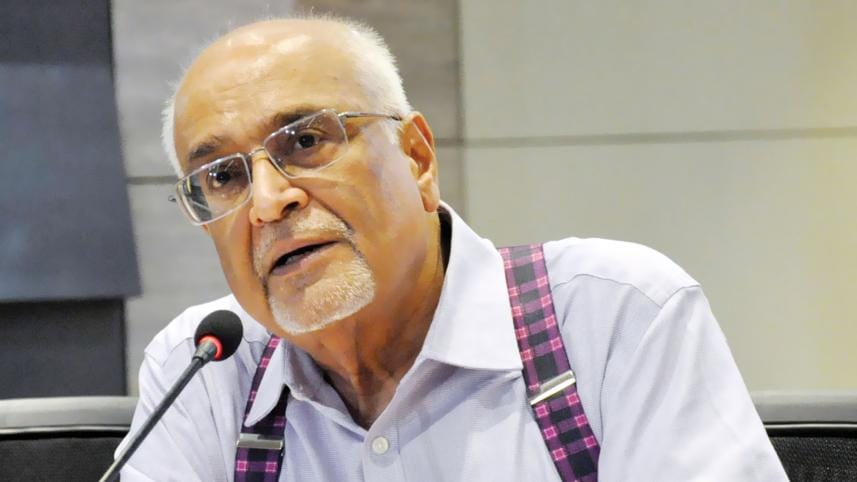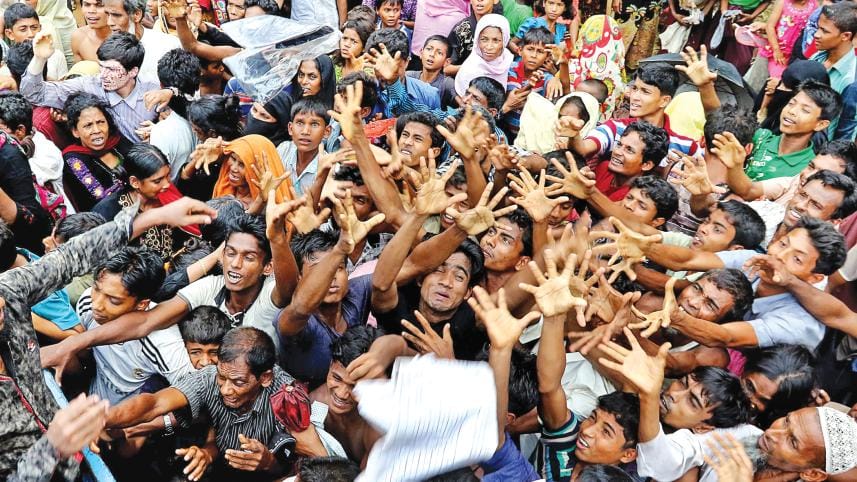“Prolonged Rohingya crisis will affect the economy”
Policy Dialogue (CPD)

The Daily Star (TDS): What could be the long-term economic impact in Bangladesh if the Rohingya crisis prolongs?
Debapriya Bhattacharya (DB): If Rohingyas continue to stay in Bangladesh for long, they will gradually be absorbed by the national labour force. This essentially means that they too will be contending for the already limited employment opportunities available in the country. Further, the population growth rate among the Rohingya refugees is higher than that of the Bangladeshis. Therefore, their share in the Bangladesh's labour force will increase in the future.
Rohingya children, born on this soil, must be taken care of by ensuring health, education, social protection and other basic provisions. This will obviously add a new burden on our tight fiscal situation. Rohingya settlements are located in the ecologically vulnerable areas, so increased population density will affect the environment adversely.
It needs to be kept in mind that permanent settlement of the Rohingyas in Chittagong hill tracts is going to undermine the local religious composition and may contribute to increase in social tensions.
TDS: It seems that global attention has shifted away from the Rohingya crisis due to the Russia-Ukraine war. As a result, funds for Rohingyas are also shrinking. What can Bangladesh do to keep the issue alive internationally?
DB: Access to external funds for upkeep of the Rohingya populations was depleting even before the Russia-Ukraine war. However, the war has further tightened the fund flows and its prospect.
A global recession is looming large. This means that both domestic and external funding opportunities for the least developed and/or low middle-income countries, like Bangladesh, will be more constrained in the upcoming months. So, we observe that not only has the flow of funds has gone down, but the prospect is also not encouraging. More funds in the future will be spent for addressing immediate humanitarian crisis and other common challenges such as climate action.

So, the financial outlook in support of the Rohingya refugees in Bangladesh definitely demands urgent attention and action. If the Rohingya crisis perpetuates, it will constrain significantly Bangladesh economy and society.
It may also deepen potential threats in the area of security and peace. Indeed, for this the global communities should be positively mindful about the lingering Rohingya issue in Bangladesh.
TDS: What are the possible way-outs?
DB: Ensuring democratic deepening in Myanmar is crucial for solving the Rohingya crisis. It is now evident that only a change in political regime in their country of origin will not bring any sustainable change in the fate of the Rohingyas. For example, during the tenure of Aung San Suu Kyi, the solution couldn't be achieved due to deep structural schism within the society of Myanmar. So, a serious democratisation effort is crucial along with a change in political regime. The Myanmarese government in exile is now talking much about national integration and confidence building among different ethnic groups in Myanmar. One wants to be hopeful about that prospect.
But till that time, we have to keep the issue alive and seek external party support in this case. If the crisis doesn't get solved in the next couple of years, we should look for third party resettlement of these forcibly displaced persons. Earlier, Rohingya refugees have gone to Saudi Arabia and Western countries through third party settlement.
Finally, we must judiciously avoid border conflict or violence with Myanmar and look for a negotiated solution of the problem.
The interview was taken by Priyam Paul.




 For all latest news, follow The Daily Star's Google News channel.
For all latest news, follow The Daily Star's Google News channel.
Comments